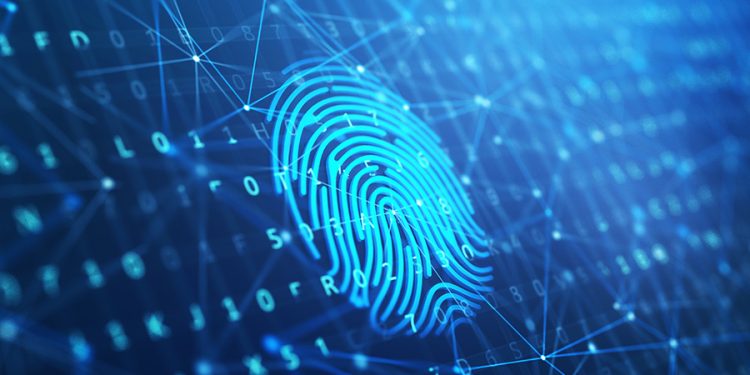Introduction
In today’s digital landscape, where interconnected devices and the Internet of Things (IoT) are becoming increasingly prevalent, ensuring secure and reliable identity management has become a critical challenge. Blockchain technology offers a promising solution to address this challenge by providing a decentralized and immutable platform for managing identities in the IoT ecosystem. In this article, we will explore the concept of blockchain-based identity management in the Internet of Things and its potential applications. So, let’s dive in and discover how blockchain can revolutionize identity management in the IoT.
What is Blockchain-based Identity Management?
Blockchain-based identity management refers to the use of blockchain technology to securely store, verify, and manage digital identities in the IoT. Traditional identity management systems rely on centralized authorities such as governments, organizations, or service providers to validate and maintain identities. However, these centralized systems are vulnerable to single points of failure, data breaches, and privacy concerns.
Blockchain technology, on the other hand, is a distributed ledger technology that enables the creation of a decentralized and tamper-proof network. By leveraging the principles of cryptography and consensus algorithms, blockchain provides a transparent and secure platform for managing digital identities without the need for intermediaries. Each identity is represented as a unique cryptographic key or a digital certificate stored on the blockchain, ensuring integrity, privacy, and control over personal data.
Benefits of Blockchain-based Identity Management in the IoT
Blockchain-based identity management in the IoT offers several key benefits:
- Enhanced Security and Privacy: The decentralized nature of blockchain eliminates the reliance on a single point of failure, making it difficult for malicious actors to manipulate or compromise the system. Cryptographic techniques ensure the integrity and confidentiality of stored identity data, protecting sensitive information from unauthorized access.
- Data Integrity and Immutability: Blockchain technology creates an immutable record of all identity-related transactions. Once a transaction is recorded on the blockchain, it cannot be altered or deleted, ensuring the integrity and trustworthiness of the identity data.
- Increased Efficiency and Interoperability: Blockchain-based identity management streamlines the process of identity verification and authentication in the IoT. It eliminates the need for repetitive identity checks, reduces administrative overhead, and enhances interoperability between different IoT devices and platforms.
- User Control and Consent Management: Blockchain empowers individuals by giving them more control over their personal data. Users can choose when and with whom to share their information, ensuring data privacy and granting access based on their preferences.
Exploring Blockchain-based Identity Management in the Internet of Things: Applications

Blockchain-based identity management has diverse applications in the IoT ecosystem:
Smart Homes and Connected Devices
In the realm of smart homes, blockchain-based identity management can play a crucial role in securing connected devices. By utilizing blockchain technology, smart devices can securely authenticate and communicate with each other, ensuring that only authorized devices have access to sensitive information or control over critical systems.
Supply Chain and Logistics
Blockchain-based identity management enhances transparency and traceability in supply chain and logistics networks. It provides an immutable record of every transaction and movement along the supply chain, enabling stakeholders to verify the origin, provenance, and quality of products. This reduces counterfeiting, improves trust, and enhances supply chain efficiency.
Healthcare and Medical Records
Blockchain-based identity management ensures secure and interoperable management of healthcare data and patient records. Medical records can be securely stored, accessed, and shared among healthcare providers, ensuring data integrity, privacy, and consent management. Patients have greater control over their medical data, granting permission for access and sharing on a need-to-know basis.
Autonomous Vehicles and Transportation
In the realm of autonomous vehicles, secure and trusted interactions between vehicles and infrastructure are essential. Blockchain-based identity management enables secure vehicle-to-vehicle (V2V) and vehicle-to-infrastructure (V2I) communication. This ensures that only authenticated and authorized entities can interact with autonomous vehicles, preventing malicious attacks and ensuring road safety.
Autonomous Vehicles and Transportation
- Blockchain-based identity management ensures secure and trusted interactions between autonomous vehicles and infrastructure.
- It enables authenticated and authorized entities to communicate with autonomous vehicles, enhancing road safety.
- Blockchain technology can prevent malicious attacks and unauthorized access to autonomous vehicles.
Smart Cities and Urban Infrastructure
- Blockchain-based identity management can play a crucial role in securing smart city infrastructure.
- It enables secure authentication and communication between different components of urban infrastructure.
- Blockchain ensures that only authorized devices and systems have access to critical infrastructure.
Energy Grids and Smart Metering
- Blockchain-based identity management can enhance the security and efficiency of energy grids.
- It enables secure communication and data exchange between smart meters and energy providers.
- Blockchain ensures accurate meter readings, prevents tampering, and facilitates transparent billing.
E-commerce and Digital Payments
- Blockchain-based identity management can enhance the security and trustworthiness of e-commerce transactions.
- It enables secure authentication of buyers and sellers, reducing the risk of fraud.
- Blockchain can streamline digital payment processes, improving efficiency and reducing transaction costs.
Cross-Border Transactions and Identity Verification
- Blockchain-based identity management simplifies cross-border transactions by providing a secure and decentralized platform for identity verification.
- It eliminates the need for intermediaries and reduces the complexity and cost of identity verification processes.
- Blockchain ensures the integrity and authenticity of identities across borders, facilitating smoother international transactions.
Government Services and Citizen Identity
- Blockchain-based identity management can transform government services by providing secure and efficient citizen identity management.
- It enables streamlined access to government services, reducing bureaucracy and improving citizen experience.
- Blockchain ensures the integrity and privacy of citizen data, enhancing trust between citizens and government institutions.
Voting Systems and Election Integrity
Ensuring the integrity and transparency of voting systems is crucial for maintaining the democratic process. Blockchain-based identity management can provide a secure platform for voter registration, authentication, and vote counting. By leveraging blockchain technology, each vote can be recorded in a tamper-proof and transparent manner, making it nearly impossible to alter or manipulate the results. Blockchain ensures that only eligible voters can participate, preventing voter fraud and enhancing election integrity. This application of blockchain technology has the potential to revolutionize the way elections are conducted, fostering trust and confidence in the democratic process.
Intellectual Property Rights and Digital Assets
The digital age has brought about new challenges in protecting intellectual property rights and digital assets. Blockchain-based identity management can provide a secure and decentralized solution for managing ownership and rights in the digital realm. By leveraging blockchain, digital assets such as music, artwork, and intellectual property can be securely registered, verified, and transferred. This ensures transparency, prevents unauthorized use or duplication, and simplifies the process of licensing and monetizing digital creations. Blockchain technology empowers creators by enabling them to assert their rights and receive fair compensation for their work.
Insurance and Claims Processing
The insurance industry heavily relies on the verification of identities, policies, and claims. Blockchain-based identity management can streamline the insurance process, enhancing efficiency, reducing fraud, and improving customer experience. By utilizing blockchain, insurance companies can securely verify the identities of policyholders, ensuring accurate underwriting and preventing fraudulent activities. Additionally, blockchain-based smart contracts can automate claims processing, enabling faster and transparent settlement of claims. This reduces administrative overhead, eliminates disputes, and enhances trust between insurers and policyholders.
Aviation and Airport Security
Aviation security is of paramount importance, and blockchain-based identity management can enhance the safety and efficiency of airport operations. By utilizing blockchain, passenger identities can be securely authenticated, reducing the risk of identity fraud and unauthorized access to restricted areas. Blockchain technology can also facilitate seamless sharing of passenger data between airlines, airports, and border control agencies, enabling faster and more accurate security screenings. This enhances airport security, improves passenger experience, and ensures compliance with aviation regulations.
Education and Academic Credentials
Verifying academic credentials and qualifications is a vital process in the education sector. Blockchain-based identity management can revolutionize the way academic credentials are stored, verified, and shared. By leveraging blockchain, educational institutions can issue tamper-proof digital certificates and degrees, eliminating the risk of counterfeit credentials. Blockchain ensures the integrity and authenticity of academic records, making it easier for employers and educational institutions to verify qualifications. This technology simplifies the process of credential verification, reduces administrative burdens, and enhances trust in the educational system.
Sports and Athlete Verification
In the world of sports, ensuring fair competition and verifying athlete identities is crucial. Blockchain-based identity management can provide a transparent and immutable platform for athlete verification and anti-doping efforts. By utilizing blockchain, athlete identities and drug test results can be securely recorded, making it difficult to manipulate or falsify data. This enhances the integrity of sports competitions and protects the rights of clean athletes. Blockchain technology also facilitates the secure transfer of ownership and trading of sports memorabilia and collectibles, ensuring authenticity and transparency in the sports industry.
Conclusion
Exploring blockchain-based identity management in the Internet of Things reveals the transformative potential of this technology. By providing enhanced security, data integrity, and user control, blockchain can revolutionize the way identities are managed in the IoT ecosystem. From smart homes to supply chains and healthcare, blockchain-based identity management offers a secure and decentralized solution to address the challenges of identity in the digital age. As the IoT continues to evolve, blockchain technology will play a crucial role in ensuring the trustworthiness and integrity of digital identities.









